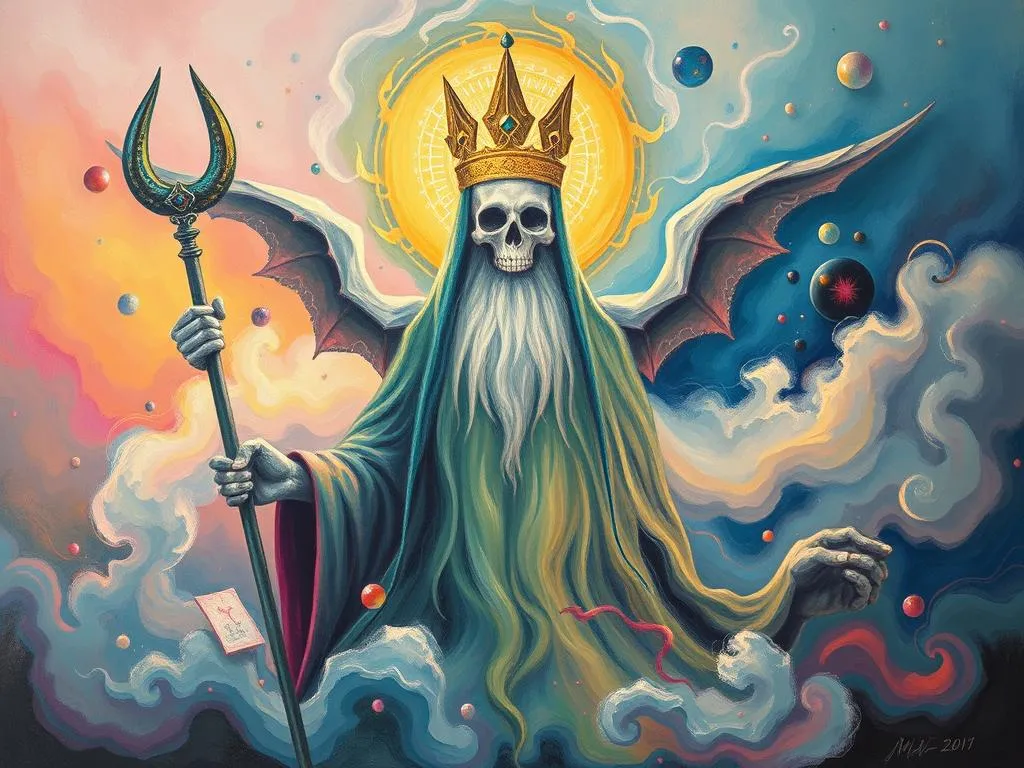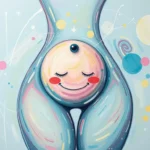
Introduction
Dreams involving the God of Death are both fascinating and unsettling, often stirring deep emotional responses. These dreams can evoke fear, curiosity, or even empowerment, depending on one’s personal beliefs and experiences. The God of Death, often symbolized by figures such as Hades, Anubis, or the Grim Reaper, serves as a powerful archetype that resonates with humanity’s fears and fascinations surrounding mortality, change, and the unknown. Exploring these dreams can offer profound insights into our subconscious, revealing hidden fears, desires, and even opportunities for growth.
Symbolism and Meaning
When we encounter the God of Death in our dreams, we are presented with a rich tapestry of symbols that can vary in meaning depending on the context of the dream and the individual’s personal associations. At its core, the God of Death symbolizes transformation, endings, and new beginnings. Such dreams can be interpreted as an invitation to confront our fears surrounding mortality or significant life changes.
One common interpretation is that the God of Death signifies the end of a chapter or phase in one’s life. This could relate to relationships, career paths, or even personal beliefs. When the God of Death appears, it may reflect a need to let go of outdated patterns and embrace new possibilities. In this sense, the figure can serve as a catalyst for change, encouraging us to shed what no longer serves us.
On the other hand, the God of Death can symbolize the fear of the unknown. Many people harbor anxieties about death, whether it pertains to their own mortality or the loss of loved ones. Thus, dreaming of this figure might surface unresolved fears and emotions surrounding loss and grief. This aspect of the dream can urge us to confront these feelings, fostering acceptance and understanding.
Furthermore, the symbolism of the God of Death can vary significantly based on cultural contexts. In some cultures, death is celebrated as a natural part of life, while in others, it is viewed with trepidation. Therefore, the dreamer’s cultural background and personal beliefs play a crucial role in shaping the meaning behind such dreams. Reflecting on these cultural associations can lead to a more nuanced understanding of the dream’s message.
Key Scenarios and Variations
The interpretation of dreams involving the God of Death can greatly shift based on the specific scenarios that unfold. For instance, if the dreamer encounters the God of Death in a context where they are being guided or led, this could symbolize a transition into a new phase of life. It suggests that while the ending may be difficult, there is guidance available, urging the dreamer to trust in the process of transformation.
On the contrary, if the dream involves a confrontation with the God of Death, where the dreamer feels threatened or pursued, it may indicate a struggle with internal fears or unresolved issues. This scenario highlights the importance of facing one’s fears rather than avoiding them. Such dreams can serve as a wake-up call, encouraging the dreamer to confront what they may have been avoiding in their waking life.
Another variation may include the dreamer witnessing the God of Death performing a ritual, such as collecting souls or conducting a ceremony. This could symbolize a cathartic release—the dreamer may be processing grief or significant life changes. Engaging with this aspect of the dream can prompt reflections on how the dreamer is coping with their emotions and whether they are allowing themselves to grieve and heal.
Additionally, if the God of Death appears in a light-hearted or whimsical manner, it may suggest that the dreamer is becoming more comfortable with the idea of mortality. This interpretation can indicate a growing acceptance of life’s impermanence, suggesting that the dreamer is learning to appreciate the present moment and the beauty of life, even amidst its inevitable endings.
Real-Life Connections and Takeaways
Dreams featuring the God of Death can serve as powerful mirrors reflecting our inner landscapes. To connect these dreams to real-life situations, it’s essential to engage in self-reflection. Consider the feelings experienced during the dream. Were they fearful, comforting, or neutral? Such emotions can provide clues about your current life circumstances and emotional state.
One practical approach is to maintain a dream journal. Recording your dreams shortly after waking can help you articulate your thoughts and feelings surrounding them. Over time, patterns may emerge, revealing recurring themes or issues in your life that require attention. This practice not only aids in processing emotions but also enhances self-awareness, allowing you to navigate life’s transitions with greater clarity.
Additionally, consider the aspects of your life that may feel stagnant or in need of change. Are there relationships, jobs, or habits that may be holding you back? The appearance of the God of Death could signify the need to release these elements in order to grow. Reflecting on what you might need to let go of can foster a sense of empowerment and readiness for new beginnings.
Engaging in conversations about mortality with trusted friends or family can also be enlightening. Discussing fears and beliefs surrounding death can demystify the topic, transforming it from a source of anxiety into a subject of understanding. By sharing perspectives, you may find common ground and support in navigating these complex emotions.
Lastly, consider exploring creative outlets as a means of processing your dreams and feelings about mortality. Art, writing, or music can serve as powerful tools for expression, allowing you to explore and externalize your thoughts and emotions in a safe space. Engaging with creativity can provide new insights and foster a deeper connection with your inner self.
In conclusion, dreams involving the God of Death are rich in symbolism and meaning, inviting us to confront our fears, embrace transformation, and reflect on our emotional landscapes. By engaging with these dreams thoughtfully and intentionally, we can uncover valuable insights that assist us in navigating life’s complexities. Whether you view the God of Death as a harbinger of endings or a guide towards new beginnings, the key lies in reflection and acceptance. Embrace the journey these dreams offer, and allow them to illuminate your path forward.







